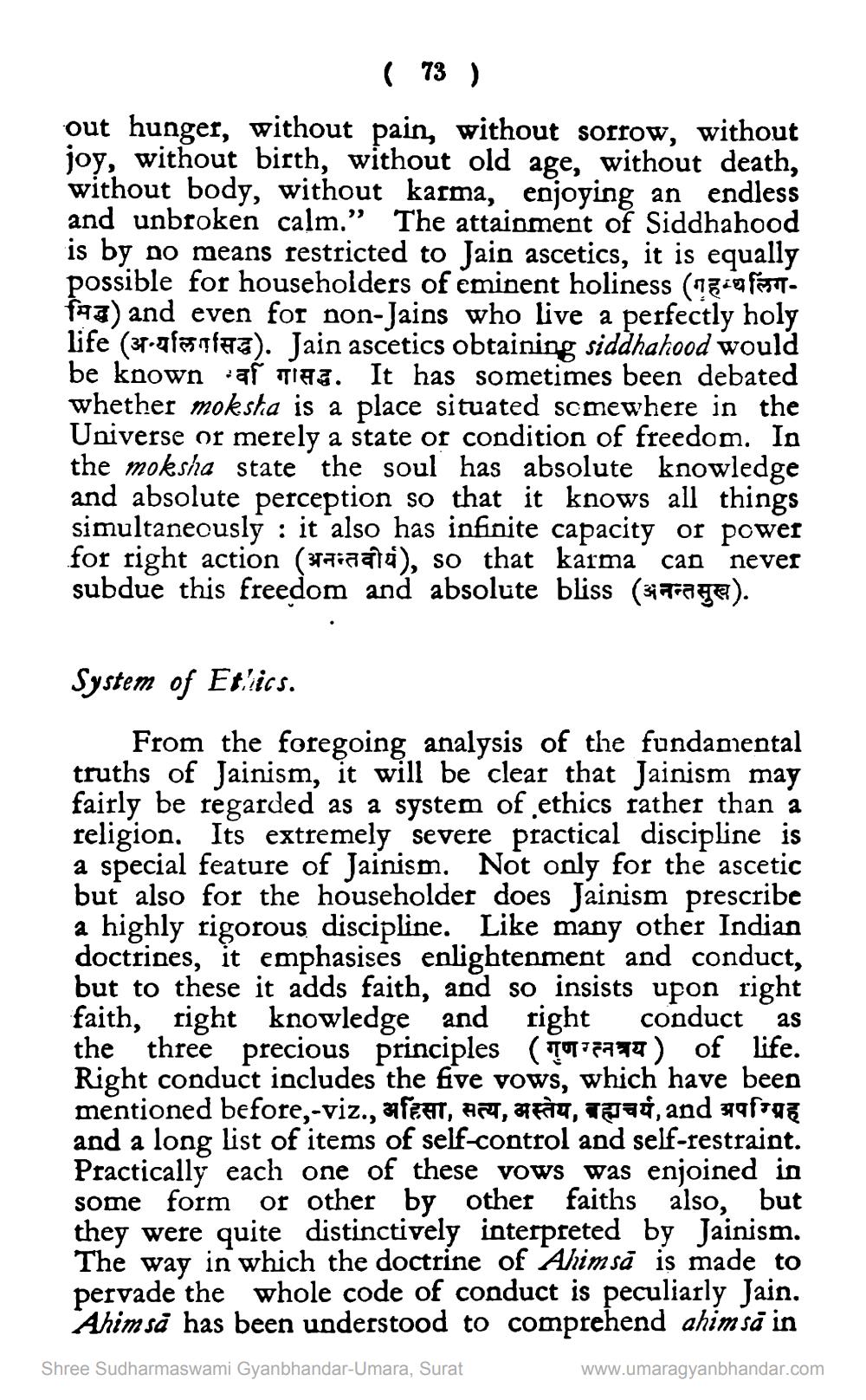________________
( 73 ) out hunger, without pain, without sorrow, without joy, without birth, without old age, without death, without body, without karma, enjoying an endless and unbroken calm.” The attainment of Siddhahood is by no means restricted to Jain ascetics, it is equally possible for householders of eminent holiness (agigfaseto 190) and even for non-Jains who live a perfectly holy life (3p.plata). Jain ascetics obtaining siddhahood would be known af Tips. It has sometimes been debated whether moksha is a place situated scmewhere in the Universe or merely a state or condition of freedom. In the moksha state the soul has absolute knowledge and absolute perception so that it knows all things simultaneously : it also has infinite capacity or power for right action (ainala), so that karma can never subdue this freedom and absolute bliss (Frage).
System of Ethics.
From the foregoing analysis of the fundamental truths of Jainism, it will be clear that Jainism may fairly be regarded as a system of ethics rather than a religion. Its extremely severe practical discipline is a special feature of Jainism. Not only for the ascetic but also for the householder does Jainism prescribe a highly rigorous discipline. Like many other Indian doctrines, it emphasises enlightenment and conduct, but to these it adds faith, and so insists upon right faith, right knowledge and right conduct as the three precious principles (Topicatu) of life. Right conduct includes the five vows, which have been mentioned before,-viz., FEHT, ACH, F, Taar, and safruz and a long list of items of self-control and self-restraint. Practically each one of these vows was enjoined in some form or other by other faiths also, but they were quite distinctively interpreted by Jainism. The way in which the doctrine of Ahimsă is made to pervade the whole code of conduct is peculiarly Jain.
Ahimså has been understood to comprehend ahim să in Shree Sudharmaswami Gyanbhandar-Umara, Surat
www.umaragyanbhandar.com




